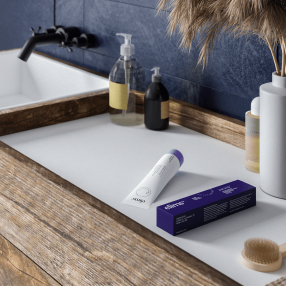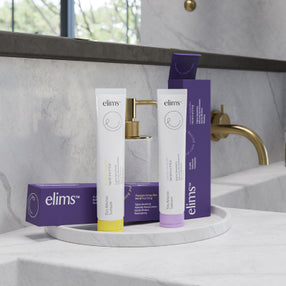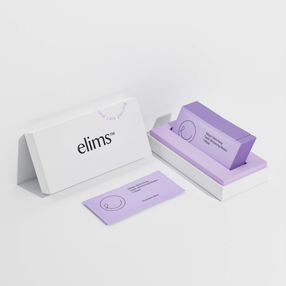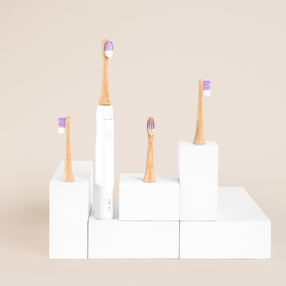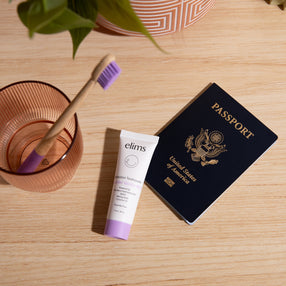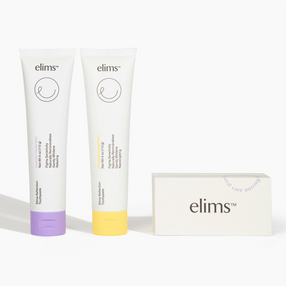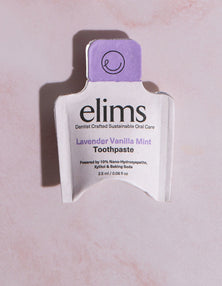
Understanding the Causes of Canker Sores and Effective Prevention & Healing Strategies
Understanding the Causes of Canker Sores and Effective Prevention & Healing Strategies
As dental professionals, our goal is to promote oral health and provide our patients and friends with the necessary knowledge to maintain a healthy smile. One common oral condition that many individuals experience at some point is a canker sore. These small, painful ulcers can make everyday tasks such as eating and speaking uncomfortable.
In this blog post, we will delve into the causes of canker sores and share effective preventive measures to help you minimize their occurrence.
What Are Canker Sores?
Canker sores, also known as aphthous ulcers, are shallow, painful sores that can appear on the inside of the mouth, including the gums, tongue, and inner cheeks. They are typically round or oval-shaped with a white or yellowish center and a red border. While they are not contagious or linked to any serious health conditions, canker sores can still cause significant discomfort.
Causes of Canker Sores:
Although the exact cause of canker sores remains unclear, several factors are known to contribute to their development. These include:
a.) Tissue Trauma: Accidental biting of the cheek, tongue, or lip, or irritation from dental appliances such as braces or ill-fitting dentures can lead to the formation of canker sores.
b.) Poor Oral Hygiene: Poor oral hygiene, including inadequate brushing and flossing, can create an environment conducive to canker sore formation.
c.) Sensitivity To SLS: Sodium Lauryl Sulfate (SLS) is a common ingredient found in many personal care products, including toothpaste, as a foaming agent, and has been linked to the development of canker sores. Because it is an irritant, some individuals who are sensitive to SLS may be more prone to canker sores.
d.) Food Sensitivities: Certain foods, such as citrus fruits, spicy or acidic foods, chocolate, and nuts, can trigger or aggravate canker sores in susceptible individuals.
e.) Stress and Hormonal Changes: Emotional stress, anxiety, and hormonal fluctuations can weaken the immune system, making individuals more prone to developing canker sores.
f.) Nutritional Deficiencies: A lack of essential vitamins and minerals, such as vitamin B12, iron, zinc, or folate, can increase the likelihood of canker sore occurrence.
Preventive Measures:
While canker sores can be challenging to eliminate entirely, the following preventive measures can help reduce their frequency and alleviate symptoms:
a.) Switching to an SLS-free toothpaste: An easy swap that can prevent or minimize the discomfort of canker sores for sensitive mouths.
b.) Practice Good Oral Hygiene: Brush your teeth at least twice a day with a soft-bristled toothbrush and fluoride toothpaste. Floss daily to remove plaque and food particles, ensuring optimal oral health.
c.) Choose a Balanced Diet: Maintain a well-balanced diet rich in fruits, vegetables, whole grains, and lean proteins. Avoid trigger foods that you have noticed to cause canker sores.
d.) Stress Management: Engage in stress-reducing activities such as exercise, meditation, yoga, or hobbies to keep stress levels in check, as elevated stress can contribute to canker sore outbreaks.
e.) Use Soft-bristled Brushes: Opt for soft-bristled toothbrushes and avoid brushing aggressively, as this can cause tissue trauma and trigger canker sores.
f.) Consider Oral Rinses: Over-the-counter antimicrobial mouth rinses can help reduce bacteria and promote a healthier oral environment. Consult your dentist to find a suitable rinse for your needs.
g.) Address Dental Issues: Correct any ill-fitting dental appliances, such as braces or dentures, that may be causing recurring tissue trauma and leading to canker sore formation.
When to Seek Professional Help:
Most canker sores heal on their own within one to two weeks. However, if you experience persistent, painful sores that do not improve or worsen over time, it is important to seek professional dental care. A dentist can evaluate your oral health, identify any underlying issues, and recommend appropriate treatment options to alleviate discomfort.
Remember, maintaining good oral hygiene practices, using high-quality and non-irritating products, managing stress levels, and following a well-balanced diet are crucial steps in preventing and managing canker sores. And, if you have concerns or persistent symptoms, consult your dentist for personalized guidance and treatment options tailored to your needs. Stay proactive, and together, we can ensure a bright, healthy smile for years to come.
Understanding the Causes of Canker Sores and Effective Prevention & Healing Strategies
As dental professionals, our goal is to promote oral health and provide our patients and friends with the necessary knowledge to maintain a healthy smile. One common oral condition that many individuals experience at some point is a canker sore. These small, painful ulcers can make everyday tasks such as eating and speaking uncomfortable.
In this blog post, we will delve into the causes of canker sores and share effective preventive measures to help you minimize their occurrence.
What Are Canker Sores?
Canker sores, also known as aphthous ulcers, are shallow, painful sores that can appear on the inside of the mouth, including the gums, tongue, and inner cheeks. They are typically round or oval-shaped with a white or yellowish center and a red border. While they are not contagious or linked to any serious health conditions, canker sores can still cause significant discomfort.
Causes of Canker Sores:
Although the exact cause of canker sores remains unclear, several factors are known to contribute to their development. These include:
a.) Tissue Trauma: Accidental biting of the cheek, tongue, or lip, or irritation from dental appliances such as braces or ill-fitting dentures can lead to the formation of canker sores.
b.) Poor Oral Hygiene: Poor oral hygiene, including inadequate brushing and flossing, can create an environment conducive to canker sore formation.
c.) Sensitivity To SLS: Sodium Lauryl Sulfate (SLS) is a common ingredient found in many personal care products, including toothpaste, as a foaming agent, and has been linked to the development of canker sores. Because it is an irritant, some individuals who are sensitive to SLS may be more prone to canker sores.
d.) Food Sensitivities: Certain foods, such as citrus fruits, spicy or acidic foods, chocolate, and nuts, can trigger or aggravate canker sores in susceptible individuals.
e.) Stress and Hormonal Changes: Emotional stress, anxiety, and hormonal fluctuations can weaken the immune system, making individuals more prone to developing canker sores.
f.) Nutritional Deficiencies: A lack of essential vitamins and minerals, such as vitamin B12, iron, zinc, or folate, can increase the likelihood of canker sore occurrence.
Preventive Measures:
While canker sores can be challenging to eliminate entirely, the following preventive measures can help reduce their frequency and alleviate symptoms:
a.) Switching to an SLS-free toothpaste: An easy swap that can prevent or minimize the discomfort of canker sores for sensitive mouths.
b.) Practice Good Oral Hygiene: Brush your teeth at least twice a day with a soft-bristled toothbrush and fluoride toothpaste. Floss daily to remove plaque and food particles, ensuring optimal oral health.
c.) Choose a Balanced Diet: Maintain a well-balanced diet rich in fruits, vegetables, whole grains, and lean proteins. Avoid trigger foods that you have noticed to cause canker sores.
d.) Stress Management: Engage in stress-reducing activities such as exercise, meditation, yoga, or hobbies to keep stress levels in check, as elevated stress can contribute to canker sore outbreaks.
e.) Use Soft-bristled Brushes: Opt for soft-bristled toothbrushes and avoid brushing aggressively, as this can cause tissue trauma and trigger canker sores.
f.) Consider Oral Rinses: Over-the-counter antimicrobial mouth rinses can help reduce bacteria and promote a healthier oral environment. Consult your dentist to find a suitable rinse for your needs.
g.) Address Dental Issues: Correct any ill-fitting dental appliances, such as braces or dentures, that may be causing recurring tissue trauma and leading to canker sore formation.
When to Seek Professional Help:
Most canker sores heal on their own within one to two weeks. However, if you experience persistent, painful sores that do not improve or worsen over time, it is important to seek professional dental care. A dentist can evaluate your oral health, identify any underlying issues, and recommend appropriate treatment options to alleviate discomfort.
Remember, maintaining good oral hygiene practices, using high-quality and non-irritating products, managing stress levels, and following a well-balanced diet are crucial steps in preventing and managing canker sores. And, if you have concerns or persistent symptoms, consult your dentist for personalized guidance and treatment options tailored to your needs. Stay proactive, and together, we can ensure a bright, healthy smile for years to come.
